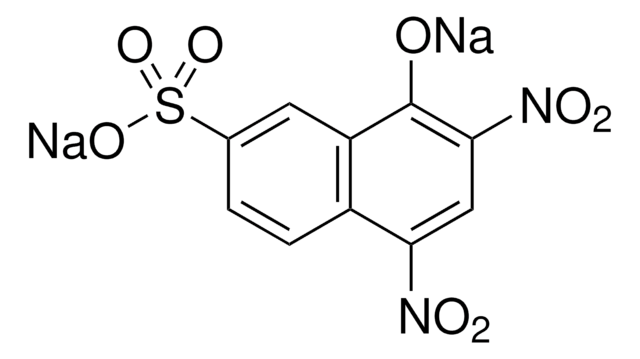85193
Silver nitrate solution
2.5 % (w/v) AgNO3 in H2O
Synonym(s):
Argentum nitricum
About This Item
Recommended Products
grade
for analytical purposes
form
liquid
concentration
2.5 % (w/v) AgNO3 in H2O
application(s)
diagnostic assay manufacturing
hematology
histology
storage temp.
2-8°C
SMILES string
[Ag]
InChI
1S/Ag.NO3/c;2-1(3)4/q+1;-1
InChI key
SQGYOTSLMSWVJD-UHFFFAOYSA-N
Looking for similar products? Visit Product Comparison Guide
General description
Application
Biochem/physiol Actions
signalword
Danger
Hazard Classifications
Aquatic Acute 1 - Aquatic Chronic 1 - Eye Irrit. 2 - Met. Corr. 1 - Repr. 1B - Skin Irrit. 2
Storage Class
6.1D - Non-combustible acute toxic Cat.3 / toxic hazardous materials or hazardous materials causing chronic effects
wgk_germany
WGK 3
flash_point_f
Not applicable
flash_point_c
Not applicable
ppe
Faceshields, Gloves, Goggles
Choose from one of the most recent versions:
Already Own This Product?
Find documentation for the products that you have recently purchased in the Document Library.
Customers Also Viewed
Our team of scientists has experience in all areas of research including Life Science, Material Science, Chemical Synthesis, Chromatography, Analytical and many others.
Contact Technical Service




